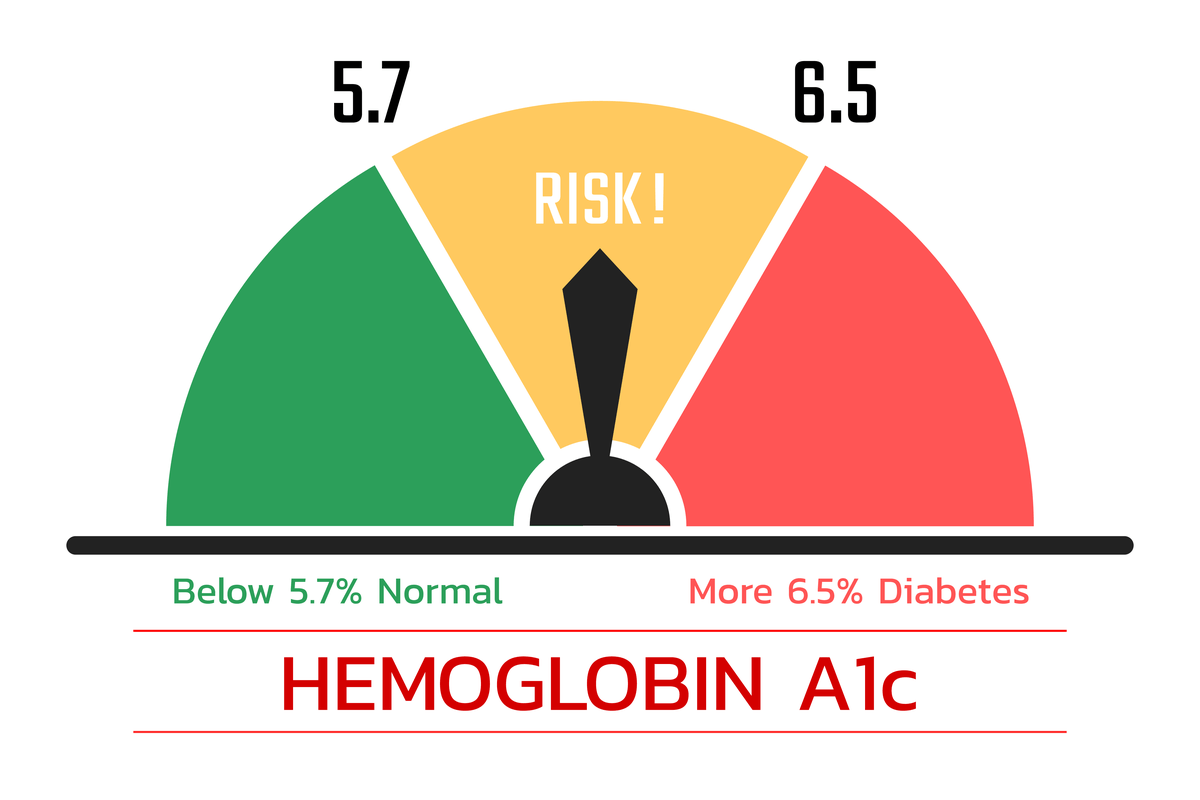Last updated on September 1st, 2022Poor lifestyle and eating habits can lead to the risk of developing diabetes or pre-diabetes. If not taken care of, diabetes can lead to several health complications like cardiovascular disease, kidney damage, stress, depression and makes your life worse. Therefore, you should keep a check on your blood sugar levels. On …
Last updated on April 12th, 2024The amount of glucose (“sugar” expressed in mg/dL) present in the blood fluctuates during the day and at night. Our body maintains a level of blood glucose for metabolism. According to the American Diabetes Association, the normal sugar level in a healthy body is less than 100 mg/dL. However, these blood …
Last updated on November 3rd, 2023What Is HbA1c? HbA1c full form is hemoglobin A1c or glycosylated hemoglobin. It is a form of hemoglobin that contains sugar. Hemoglobin is a kind of molecule that is present in red blood cells and helps in carrying oxygen to the body’s tissue. Read this blog to know what the hba1c …
Diabetes hyperphagia, or excessive hunger in diabetes, is a common symptom. It can signal fluctuating or uncontrolled blood sugar levels. Many diabetics experience intense hunger, often driven by insulin resistance or low blood sugar episodes. Recognizing and managing this hunger is essential for stable glucose levels and overall health. In this blog, we’ll explore the causes, …
Winter can make managing blood sugar levels more challenging. Colder weather often leads to reduced physical activity, cravings for comfort foods, and less sunlight exposure—all of which can impact blood glucose. High blood sugar in winter not only affects energy and mood. But it can also worsen symptoms in people with diabetes. This blog will explore …
Type 2 diabetes is one of the most common health conditions worldwide, yet it’s surrounded by numerous myths and misconceptions. These misconceptions can lead people to believe they’re powerless over their health or destined for a lifetime of medications. In reality, effective diabetes management often involves a combination of lifestyle adjustments, knowledge, and the right support. …
Managing diabetes requires both consistency and adaptability to stay on top of blood glucose levels, meal planning, and physical activity. While general guidelines are essential, incorporating quick hacks can help make daily diabetes management smoother, more practical, and less overwhelming. These small adjustments offer time-saving, effective ways to support your blood glucose control. Each hack works …
Diabetes affects millions worldwide, but managing or reversing it requires different approaches tailored to individual health goals. The sole objective of diabetes management is to prevent problems by managing blood sugar levels utilizing medication and lifestyle alterations. Diabetes reversal aims to reduce blood sugar levels without the need for medication. Thus potentially restoring normal glucose control. …


 English
English
 العربية
العربية 














